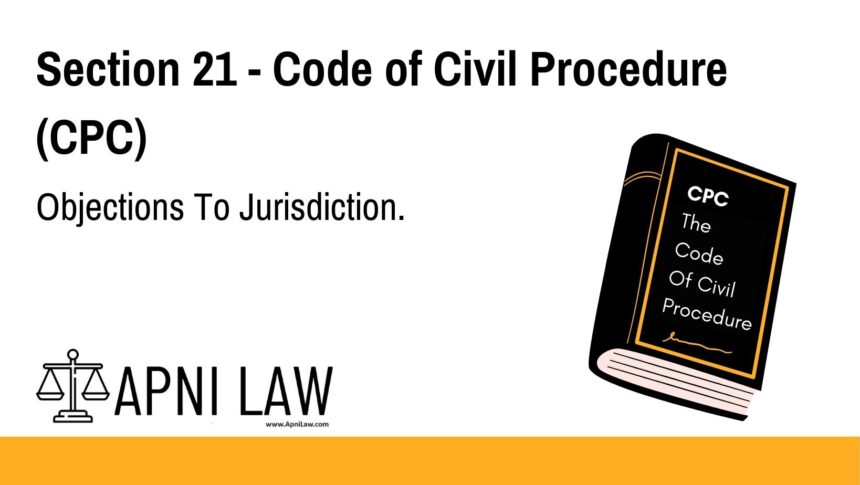Code
(1) No objection as to the place of suing shall be allowed by any Appellate or Revisional Court unless such objection was taken in the Court of first instance at the earliest possible opportunity and in all cases where issues are settled at or before such settlement, and unless there has been a consequent failure of justice.
(2) No objection as to the competence of a Court with reference to the pecuniary limits of its jurisdiction shall be allowed by any Appellate or Revisional Court unless such objection was taken in the Court of first instance at the earliest possible opportunity, and, in all cases where issues are settled, at or before such settlement, and unless there has been a consequent failure of justice.
(3) No objection as to the competence of the executing Court with reference to the local limits of its jurisdiction shall be allowed by any Appellate or Revisional Court unless such objection was taken in the executing Court at the earliest possible opportunity, and unless there has been a consequent failure of justice.
Explanation of Section 21 CPC
Section 21 CPC deals with procedural bars to raising objections regarding the jurisdiction of a court. It outlines three specific types of jurisdiction-related objections:
- Objections regarding the place of suing (territorial jurisdiction),
- Objections regarding pecuniary jurisdiction,
- Objections regarding the executing court’s local jurisdiction.
In all three cases, the objection must be raised at the earliest opportunity during the trial (typically in the court of first instance) and there must be a demonstrable failure of justice for the objection to be considered by an appellate or revisional court.
Illustrative Example
Let’s say a defendant fails to raise an objection regarding the territorial jurisdiction of the court during trial and only brings it up during appeal. In that case, unless it is proven that there was a failure of justice due to the trial court’s lack of jurisdiction, the appellate court will not entertain such objection under Section 21 CPC.
Common Questions on Section 21 CPC
What happens if jurisdictional objection is not raised at the earliest stage?
If a party fails to raise a jurisdictional objection (whether territorial, pecuniary, or local executing) at the first possible opportunity, and there is no failure of justice, then the objection will be barred under Section 21.
Can objections to jurisdiction be raised during appeal?
Only if:
- The objection was raised at the earliest opportunity in the trial court,
- The objection pertains to territorial, pecuniary, or executing court jurisdiction,
- There has been a failure of justice.
What’s the difference between Section 21 and Section 9 CPC?
Section 9 CPC allows civil courts to try all civil suits unless expressly barred, while Section 21 restricts when and how jurisdictional objections can be raised in appellate or revisional stages.








